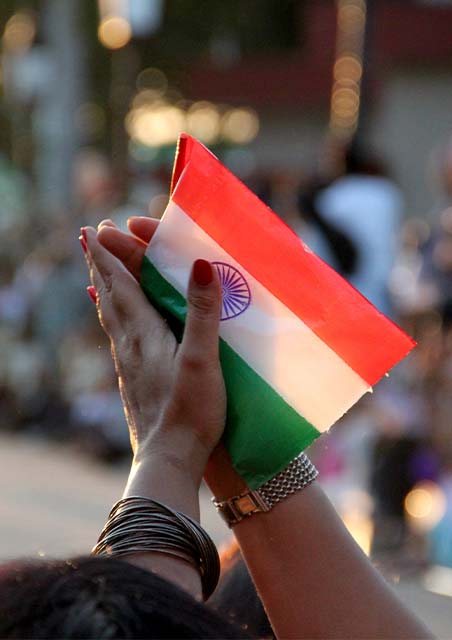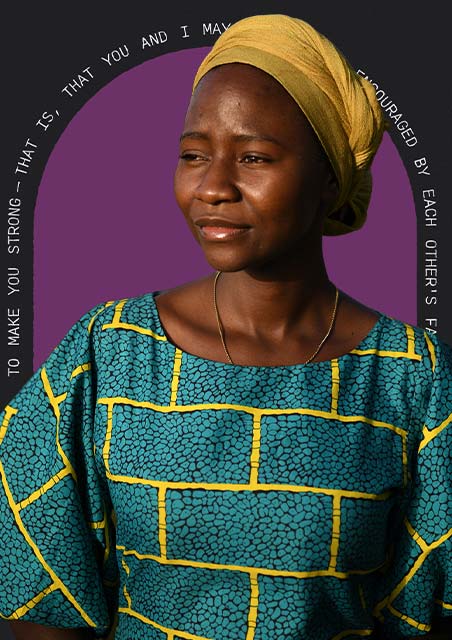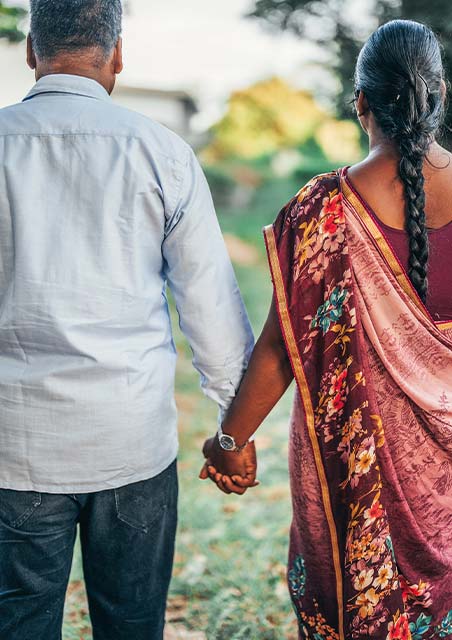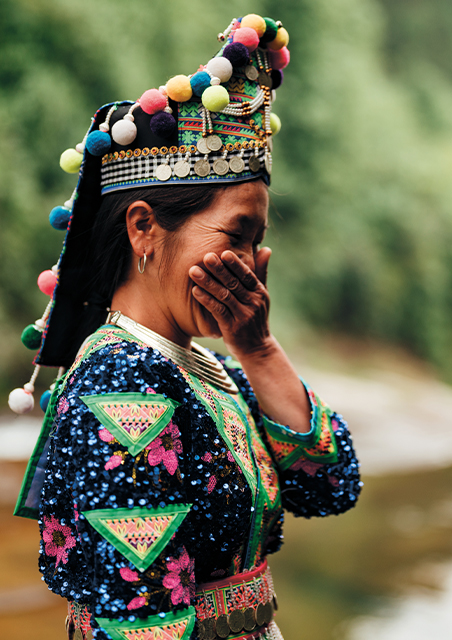Will you write to encourage Pastor Jeremiah in Nigeria?
You might recognise the face of Pastor Jeremiah from the cover of the latest World Watch List Top 50 booklet. He lives in Nigeria, where more Christians die for their faith than anywhere else in the world. He knows first-hand the cruel reality of this – last year his community was attacked. This is his story, your role in it, and how you can continue to stand with him, not only in prayer, but by writing him a letter...

You can write to Pastor Jeremiah to encourage him as he leads a church community gravely affected by a recent militant Fulani attack
“When we go to sleep at night, we are never sure whether we will make it alive to the next day.”
Pastor Jeremiah – whose name we’ve changed to protect his identity – voices these words sat amongst ruined mud walls blackened by scorch marks. This was his home until his village, in Nigeria’s Middle Belt, was attacked in April 2020 – part of a wave of violence against Christian farmers and communities, carried out by militant Fulani herdsmen.
This year, Nigeria entered the top ten of the World Watch List for the first time. Between October 2019 and September 2021, 3,530 Christians in Nigeria were killed for their faith in Jesus – on average that’s just under ten believers each day. It’s a marked rise on the previous year, due in large part to lockdown which made Christians sitting targets for Fulani militants and others who target believers.
The day militant Fulani attacked
It was 4pm on Thursday 23 April. “We heard gunshots close to our vicinity,” Pastor Jeremiah remembers. “We told our women and children to go to the next town, while the men stay guard.”
Fifteen minutes later, armed Fulani had surrounded the town. It was impossible to withstand them, so everyone fled – some ran deep into the bush, others to the rocks, and others to the next town. “The Fulani shot at me while I was running,” the pastor says.
Tragically, some of the Christians from the village didn’t survive.
The militants went from house-to-house, setting everything ablaze. They went into Pastor Jeremiah’s church. After stacking plastic chairs and placing them in a heap on top of the wooden benches where people sit, the attackers set it alight, hoping it would burn the benches, engulf the whole church and destroy the church. Remarkably, the benches did not catch fire.
"We still pray for [the Fulani militants] to change their ways... nothing is difficult for God" 'Pastor Jeremiah'
The following morning, after the militants had fled, Pastor Jeremiah and others returned to the village to survey the damage.
“When we returned, all we saw were fire and smoke rising from houses and stored grains,” Pastor Jeremiah continues. “Those who were around began pouring water to salvage their grains, to have something to eat, even for just a few days.”
Layers of rubble, mudbricks, dishes and burnt corrugated steel all laid in piles across the village. Homes stood naked without rooftops, and the mudbrick walls were scorched with black stains from the fires. Even now as he shares, Pastor Jeremiah’s home retains the scars of that fatal day – a doorframe with no door, an absent roof, ash and soot covering the ground.
“They [the Fulani militants] did this because they want to own this area, from here into all the bush,” the pastor says. “That is why they attacked intending to kill the people here. But God did not allow that to happen.”
Who are the militant Fulani herdsmen and why do they attack Christians?
The Fulani – also known the Fula people – are seen as the world’s largest nomadic group, numbering some 40 million people across 20 nations. The majority are in western Africa. They have pastoral roots, organised primarily around nomadic herding of cattle, sheep and goats, and were early adopters of Islam.
The conflicts amongst farming communities have emerged because the frontier of the Sahara Desert has move southward, gradually pushing Fulani herds from their lands. In areas such as Nigeria’s Middle Belt, where farmers are predominantly Christian who’ve lived there for generations, the extremists amongst the Fulani have turned disputes into something far more sinister, with attacks being driven by ethnic and religious ties.
Pastor Jeremiah’s village in the Kufana area is more susceptible to attacks because of its remote location. There are no boreholes for clean water, electricity or roads, and forest surrounds them.
“We have cried to the government to intervene, but they have done nothing,” the pastor says. “We still pray for [the Fulani militants] to change their ways because some of them were forced into it, while others have hardened their hearts to do this evil. But nothing is difficult for God.
“Before, we talked freely with the Fulani, but now we have become like a snake and man — when you give your hand to the snake, he will bite it,” he continues. “This has become heavy on us today.” The fear of further attacks always looms, but Pastor Jeremiah says local Christians do not want to react with violence. “Even if we die, we are in the hands of God.”
“If you had not come, we would have suffered even more"
Pastor Jeremiah continues to selflessly shepherd his people toward hope, reminding them that God is with them and still has plans for them. “We should give glory to God,” he says. “He is alive and will help us.”
You’ve come alongside Pastor Jeremiah and the believers under his care with the provision of food, medicine, help rebuilding homes, spiritual support and trauma care. “If you had not come, we would have suffered even more,” he says. “Open Doors, on behalf of my people, thank you.”
It’s not just the practical help that means so much to Pastor Jeremiah and his church – it’s the opportunity to connect with believers around the world. “God has allowed us to fellowship with one another,” he shares, speaking directly to everyone who have prayed and sent support to their village. “Even with all our differences, together, because of Him, we are One.”




